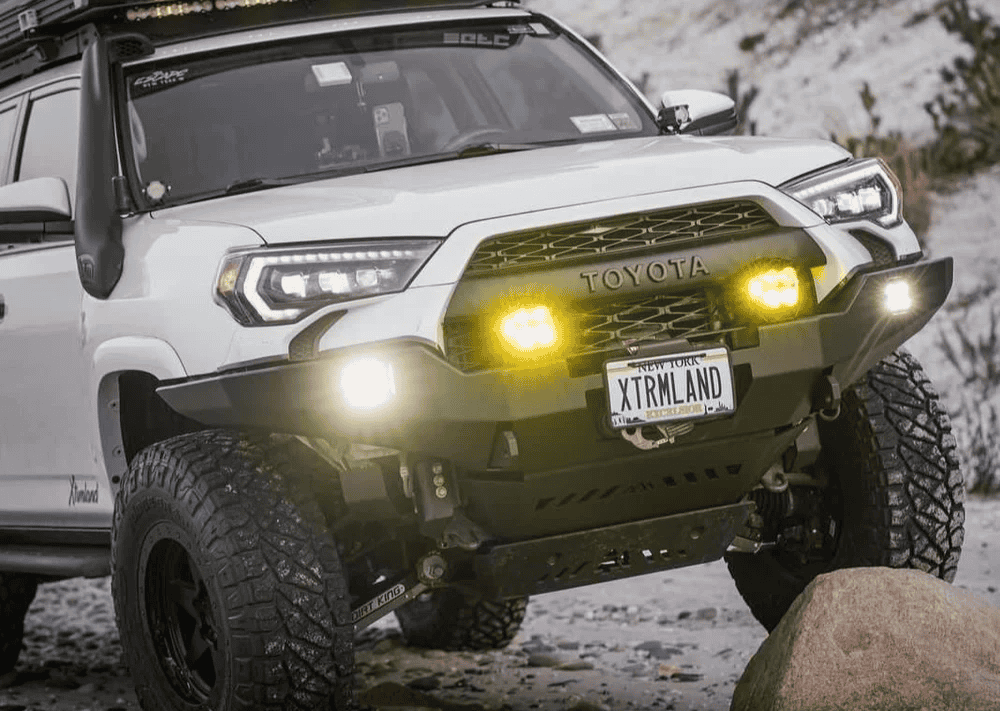Overland Vehicles

A doomsday camper is a mobile shelter engineered to maintain water, power, heat, and communications when services drop out. Think of it as a rolling basecamp that trades amenities for autonomy. The closest cousin is a survival motorhome, which prioritizes longer range and interior comfort while still protecting critical systems from failure. Both aim for quiet operation, low signature travel, and dependable storage for fuel, food, and tools.
Design starts with a realistic mission. Urban evacuation calls for compact dimensions, tight turning, and stealthy exteriors. Long rural routes reward larger tanks, better insulation, and redundant power. Climate matters too. Cold environments need insulated plumbing, heated battery systems, and moisture control. Hot regions require efficient ventilation, shading, and low draw cooling strategies.
Weight and payload are non negotiable. Heavy armor and oversized tanks can push you past safe limits fast. Plan around gross vehicle weight rating, leave margin for passengers and gear, and test drive a fully loaded rig before committing. Survivability is not about maxing every spec. It is about balance.
A survival motorhome stretches the concept with greater interior volume, often a stronger electrical backbone, and better weather protection. The key is redundancy. If one subsystem fails, another carries the load until you can troubleshoot.
Power architecture benefits from clear priorities. Essential circuits like communications, lights, pumps, and ventilation live on a protected bus. Luxury circuits get switched off during scarcity. Lithium batteries offer superior cycle life and low temperature performance when paired with proper heating and management.
Water management extends beyond tank size. Insulate lines, protect valves from road debris, and include a manual pump that bypasses electronics. Grey water handling should be simple, legal, and quick to service. For sanitation, cassette or dry flush systems reduce complexity and let you avoid frozen tank issues in a storm.
Some travelers prefer compact builds for agility and stealth. Others choose survival trailers to offload weight and create a breakaway option. The right answer depends on terrain, towing experience, and storage. A small survival camper can tuck into tight spaces and burn less fuel. A capable trailer can carry water, fuel, and seasonal gear while leaving the tow vehicle lighter during day trips.
Aerodynamics and range deserve a hard look. A boxy trailer behind a gas truck may have half the range of a diesel van on the same route. Run a fuel budget with headwinds, grades, and detours. Storage discipline matters too. The more space you have, the more unnecessary items will creep aboard. Set limits and audit every quarter.
Route planning should include multiple exits, refuel nodes, water sources, and repair stops. Mark safe overnight spots by wind exposure, flood risk, and egress options. Practice loadouts and maintenance drills at home. Run your rig for a weekend with all screens off and no shore power. Weaknesses surface fast when you simulate real conditions.
Food strategy is about calories, density, and variety. Choose shelf stable staples, then add morale boosters that do not require extra fuel or water. Medical supplies should match your training. Take a class, keep reference cards, and label kits by scenario. Tools live where they are used. Recovery gear rides near the rear door, plumbing spares near the water system, and fuses beside the electrical bay.
Translating a checklist into a dependable vehicle takes fabrication experience, careful system integration, and road testing. If you want a purpose built rig that can handle long routes and harsh weather, explore overland focused design and professional install standards. See how complete builds optimize payload, electrical redundancy, and serviceability across real routes and climates.
For examples of integrated power, water, suspension, and storage tuned for off grid travel, explore Explore overland rigs. If you are ready to spec your platform, review Custom overland upfit options to align systems with your use case. Want to understand the build approach and client experience end to end, read Why choose OZK Customs.
OZK Customs designs and builds adventure ready vans, overland trucks, and tailored survival motorhomes that prioritize reliability, safety, and real world usability. From electrical architecture and water systems to suspension and recovery, we create integrated solutions that match your routes, climate, and payload. Share your needs and timeline, and we will deliver a turn key rig that feels calm under pressure.
Ready to turn your plan into a purpose built survival camper or survival motorhome? Talk with OZK Customs about complete builds and overland upfits designed for real world reliability. Share your mission profile, timeline, and budget, and we will map a build that keeps you moving when it matters.
ADDRESS:
6159 E Huntsville Rd, Fayetteville, AR 72701
PHONE:
(479) 326-9200
EMAIL:
info@ozkvans.com